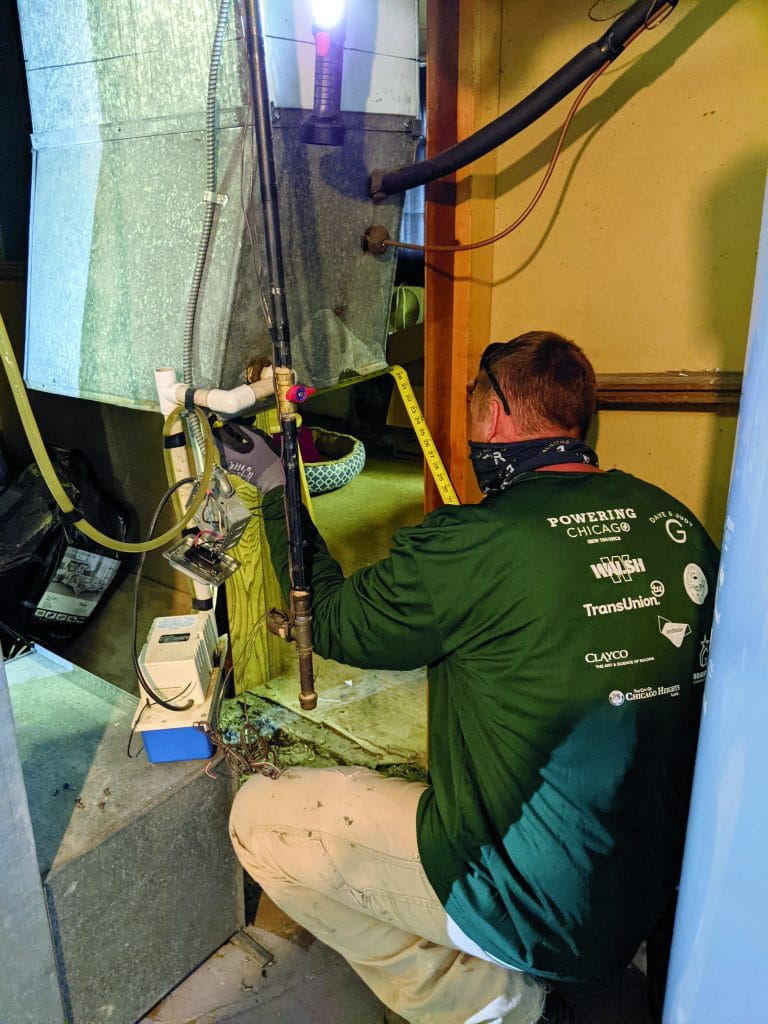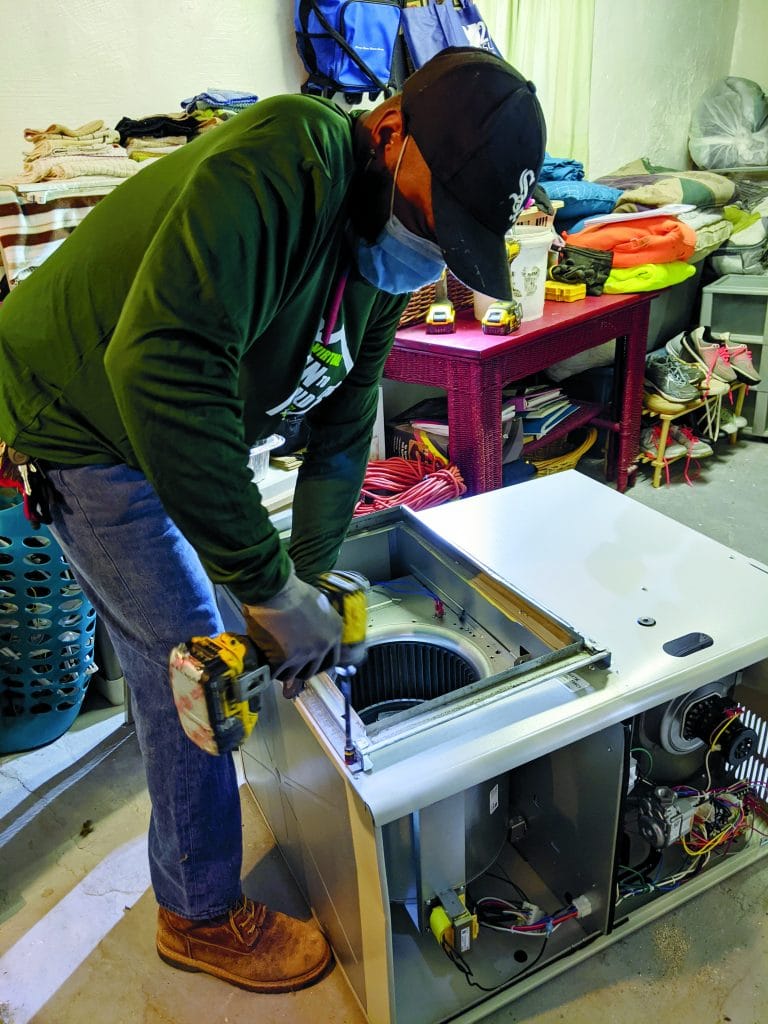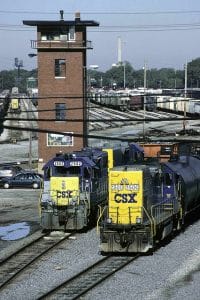At a roundtable discussion June 10, local representatives for transportation, labor and commerce urged members of the U.S. House Subcommittee on Railroads, Pipelines and Hazardous Materials to pledge more funding to a plan aimed at overhauling the region’s rail system, otherwise known as the Chicago Region Environmental and Transportation Efficiency Program, or Create.
The initiative is a public-private partnership between federal, state and local governments and Metra, Amtrak and the nation’s freight railroads that seeks to improve the flow of rail transportation in and around Chicago. Ten years along, the mammoth project is barely one-third complete and vastly over budget. The plan’s initial cost estimate was $1.5 billion; now it’s closer to $3.2 billion, officials said. Of that, $1.2 billion already has been spent or committed, they said.
Read the full story at Crain’s Chicago Business News.
Illinois State Legislative Director Bob Guy offered the following testimony before the U.S. House Subcommittee on Railroads, Pipelines and Hazardous Materials.
“Chairman Denham, Ranking Member Brown, Members of the Transportation and Infrastructure Committee, my name is Bob Guy and I serve as the Illinois State Legislative Director of the Transportation Division of the Sheet Metal, Air, Rail, Transportation Union, or SMART. The Transportation Division of SMART, formally the United Transportation Union, represents approximately 80,000 transportation employees working in all operating crafts like conductors, engineers, yardmasters, trainmen and switchmen. Thank you for the opportunity to speak with you today about our views on rail transportation policy.
“Our organization has a long history working with the railroad industry on a variety of important issues, including the CREATE project. We see projects, like those we are here to discuss today, as a way to not only benefit the national economy but are ones that will benefit our members and workers across the country. Thank you again for holding this discussion in hopes of finding ways to expedite the completion of the CREATE program.
“With the growing demand for l passenger and freight rail services in this region, we certainly view the CREATE project as a part of a broader national discussion about the state of our transportation system and not just another policy debate. This project is about providing mobility for the people of this region, generating new economic opportunities, and providing American businesses with the infrastructure they need to distribute their products to the rest of the world. CREATE needs to happen if we hope to ensure the U.S. standing as a dominant force in the global marketplace.
“CREATE and its partners worked together to identify the causes of transportation congestion and then agreed on the best solutions to fix them. The CREATE plan , combines specific projects into one comprehensive plan, identifies the sources of funds needed from both the public and private interests to implement the plan. The CREATE plan has already started, and completed some initial projects so I’m happy to report we are already under way. We also have a budget proposal in place from the FRA that provides the funds needed for the ultimate completion of this comprehensive plan. The current FRA budget proposal provides $2.87 billion dollars for Congestion Mitigation and Freight Capacity improvements in the Rail Service Improvement Program Section.
“For years, any railroad meeting in Chicago included the topic of how can we get CREATE completed and the answer always seemed to be “We must get this project into the U.S. DOT Budget!” There has been great progress and we now have this project included in the FRA budget proposal, our next step is to make sure this budget, and this project, gets the necessary long-term funding for timely completion.
“Among the many great attributes of the CREATE program are particularly important to us as railroad operating employees, and those are the projects involving highway-rail grade crossing separations. These projects obviously allow for more fluid and efficient movement of both trains and vehicles and provide the region with a demonstrated public benefit, but they also prevent vehicle-train collisions, a safety benefit that we wholeheartedly support.
“I worked as a railroad operating employee for years in the Chicago area’s congested rail lines and have sat for hours on trains breathing in diesel exhaust waiting for traffic to clear, and I can report it’s not only a unhealthy situation for railroad employees idling locomotives wastes fuel and emits exhaust emissions unnecessarily.
“CREATE will also be impacted by the expiration of two very important rail laws at the end of FY 2013, those are the Rail Safety Improvement Act of 2008 (RSIA) and the Passenger Rail Investment and Improvement Act of 2008 (PRIIA).
“Within these two reauthorizations we ask that the committee provide adequate, predictable and long-term funding for Amtrak and to ensure continued passenger investment. Investments in CREATE, Amtrak and High-Speed Rail are essential to our nation’s economic future and will help create an essential transportation service that links more communities across the country and will help put Americans back to work.
“This investment will also help increase an already record ridership level on Amtrak. Our research indicates that each weekday, more than 1,900 flights depart O’Hare with destinations of 500 miles or less. An integrated High Speed Rail system connecting the population centers in the Midwest could easily make 50% of these flights unnecessary by providing competitive train service, much like what is currently taking place on the Northeast Corridor. Opening up 1,000 departure slots at O’Hare would help air congestion nationwide, and would also be cost beneficial by providing opportunities for more long distance and international flights.
“In closing, in the months ahead when the committee works on important issues like CREATE, PRIIA and RSIA, we ask that you consider other important topics that are vital to railroad operating crews, including:
- Avoiding risky attempts to privatize Amtrak’s operations and core services;
- Safeguard the rights, jobs and wages of front-line workers;
- Maintain and strengthen Buy America policies;
- Implement fair passenger carrier licensing provisions;
- Ensure strong safety provisions to protect rail workers and operations, including addressing worker fatigue issues within the industry and ensuring the implementation of Positive Train Control (PTC).
“I sincerely appreciate the opportunity to share our thoughts with the Committee today. I will be happy to answer any questions.”


 According to the report, more than 60 engineers, conductors and switchmen at Barr Yard in Chicago have been furloughed, fueling speculation that the Chicago yard may soon close.
According to the report, more than 60 engineers, conductors and switchmen at Barr Yard in Chicago have been furloughed, fueling speculation that the Chicago yard may soon close.
 With last week’s 7 feet of snow in upstate New York heralding an early winter, railroads crisscrossing Chicago are rushing to open 24-hour command centers, install heaters to keep switches from freezing, and plotting ways to reroute traffic.
With last week’s 7 feet of snow in upstate New York heralding an early winter, railroads crisscrossing Chicago are rushing to open 24-hour command centers, install heaters to keep switches from freezing, and plotting ways to reroute traffic. WASHINGTON — Right now, you would need $75 minimum and at least nine hours of travel time to get from Chicago to Omaha aboard an Amtrak train cutting across southern Iowa and missing most of the state’s major cities.
WASHINGTON — Right now, you would need $75 minimum and at least nine hours of travel time to get from Chicago to Omaha aboard an Amtrak train cutting across southern Iowa and missing most of the state’s major cities. Warning that the frequent railroad trains loaded with crude oil passing through the Chicago area are a “serious risk to public safety,” the City Council is calling for tighter restrictions on the shipments than federal officials proposed in July.
Warning that the frequent railroad trains loaded with crude oil passing through the Chicago area are a “serious risk to public safety,” the City Council is calling for tighter restrictions on the shipments than federal officials proposed in July.